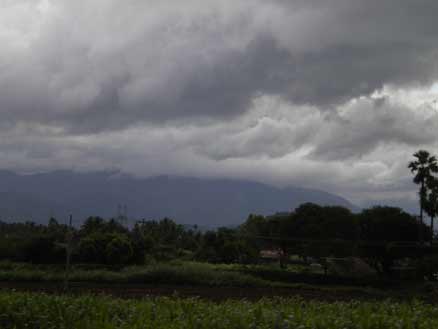Drought hits Uttarakhand hills, 74,000 hectares of farmland affected

Over 74,000 hectares of agricultural land in seven hill districts in the state is drought-hit, according to a report by the state agriculture department, which also predicted a 10% decline in wheat production in Uttarakhand this year.
Post-monsoon rainfall in these districts has gone down by 50% in 2015-16, triggering the drought-like conditions, according to the report. The worst affected is Almora, where 57% of total cultivated land – 25,334 hectares – is drought-hit, followed by Rudraprayag (49.7%) and Pithoragarh(48.6%). Large patches of farmland in Bageshwar, Champawat, Nainital and Pauri are also reeling under a drought.
The drought assessment report has been submitted to higher authorities so that a compensation plan for farmers can be worked out. “We have submitted our report to the higher officials for further action. Seven districts are grappling with water issues which has impacted the agriculture in these hill districts,” said Gauri Shankar, director, agriculture department, Uttarakhand.
The compensation may come as little relief to thousands of farmers in the state, as their woes are far from over with the meteorological office predicting that Uttarakhand is staring at rain deficit in the pre-monsoon season with a shortfall of 27 per cent.
The state had witnessed rainfall deficit during monsoon, post-monsoon and the winter season in the previous year.
The report also predicts a decline of up to 10% in the wheat production in the state in 2016. Uttarakhand has recorded major loss in yield of wheat production in the previous year as well. While in 2013-14, total wheat produce was 9.80 metric tonne, in 2014-15 the figure plunged to 6.54 metric tonne.
Dr Jitendera Kumar, dean (agriculture), GB Pant Agriculture University & technology, said, “Water scarcity and climatic turbulence can be called an emergency. For every 1 degree rise in the temperature, production of wheat reduces by 4 to 6 quintal per hectare. For production of just 1kg wheat approximately 800 litres of water is required. We urgently need to prepare a holistic strategy to curb such issues. The agriculture ministry should make efforts to direct farmers towards modern methods of farming.”








